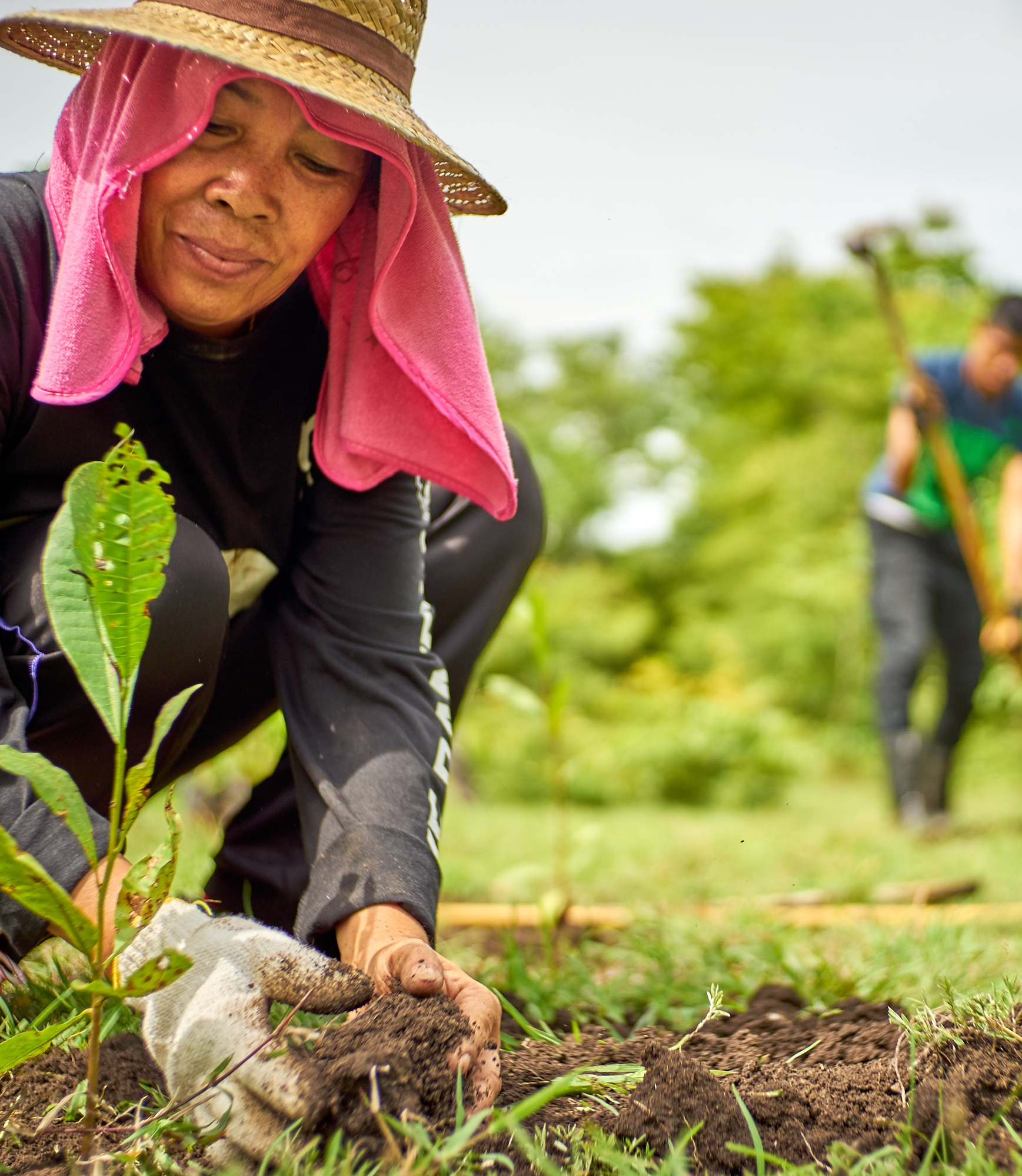Forest conservation is in itself one of the greatest environmental challenges of our time and yet one of the most threatened by illegal business practices and corrupt activities.
Yearly the world loses around 5 million hectares of forest, 95% of which happens in the tropics. We now know that there is less than 30% of the greater Mekong forest remaining. The forest sector is in a continuous struggle; its constant vulnerabilities and threats, such as Illegal logging and exploitation of forest products, illegal wood trade, and other forest crimes, have contributed to this great deforestation.
Vietnam alone, the second largest tropical log importer where timber exports are thriving, has witnessed a loss of 2.6 million hectares of tree cover between 2001 and 2018.
These overwhelming numbers show us the urgency of innovative solutions that promote the sustainability of the forestry sector. Such emerging enterprises focusing on slowing down the harmful impact of the current practices can have a catalyzing effect on a generation of new proposals by the local communities to rejuvenate this sector and forest trade.
In order to reduce forest crime and its subsequent deforestation, along with civil awareness and government intervention and regulation, it is essential to provide the private sector with resources and support to foster sustainable business practices and empower a new generation of founders.
Unfortunately only a very small minority of these enterprises have access to quality support platforms that provide the resources and structured business training, and personalized guidance they need to become resilient and impactful businesses.
“In the context of timber and forest products trade in the Lower Mekong Region, we see farmers and smallholders as entrepreneurs. In many cases, they not only lack technical skills but also the basic business skills to turn their livelihoods into genuine and sustainable businesses generating profits and creating jobs", says Alexis Corblin, Regional Technical Advisor for the UN Environment Programme.
"We believe that turning rural livelihoods into sustainable businesses and SMEs is the best way to support the development of local economies that truly value forests and the many vital services they provide,” he added.
Introducing the Sustainable Forest Trade Incubation Program
By becoming part of initiatives such as the Sustainable Forest Trade Vietnam Incubation Program, a new generation of founders can help fight deforestation while promoting a dynamic forest sector and sustainability for their communities. A platform within the scope of the UN-REDD program, developed by the UN Environment Programme (UNEP) the World Wide Fund for Nature (WWF) and Bridge for Billions, to promote the impact and growth of such ventures.
“If there are more demonstrably sustainably produced wood products on the markets then people are more likely to prefer these over those of dubious origin. There is also always more that can be done to enhance sustainability and scale up sustainable business models", says James Bampton, WWF Regional Forest Lead, Asia Pacific.He continued: "However, not all businesses engaged in wood supply chains have all the information and tools at their fingertips to turn good ideas into a sustainable reality. This enterprise incubation program aims to help those with early-stage ideas to improve their sustainability and grow their businesses so we have more sustainably produced wood products on the market and start to crowd out those that are not".
We’re looking for sustainable forest solutions!
The initiative will accelerate sustainable forestry by supporting 100 SMEs working towards sustainable wood trade in Vietnam and Thailand.
By providing an intense online incubation experience, it will help entrepreneurs to successfully develop and grow resilient businesses, by guiding them into structuring their business scenarios, working on their value proposition, finding their product-market fit, building a business that’s financially viable, a growth plan, while expanding their network, and accessing technical training by industry experts on sustainable and legal value chains and finance and investment.
Each SME will get individualized mentorship, with a dedicated mentor who will challenge and guide them throughout the entire journey of the program.
“We are looking for the community of founders who want to develop financially sustainable wood businesses that have the mission to preserve the environment and the forest sector at the core of their business practices", says Alexandra Martins, Program Manager from Bridge for Billions.
"And not only do we want to find these enterprises but also the best mentors for them. We’re searching for those individuals that understand the reality of these entrepreneurs and can help them with their business model and the motivational support they need”, she added.
Do you know any timber enterprises that have a positive impact on their industry and the local communities at heart that could benefit from this opportunity? Join this initiative by joining the call for SMEs and mentors. Learn more about the program for Vietnam and Thailand.
* Story contributed by Bridge for Billions

